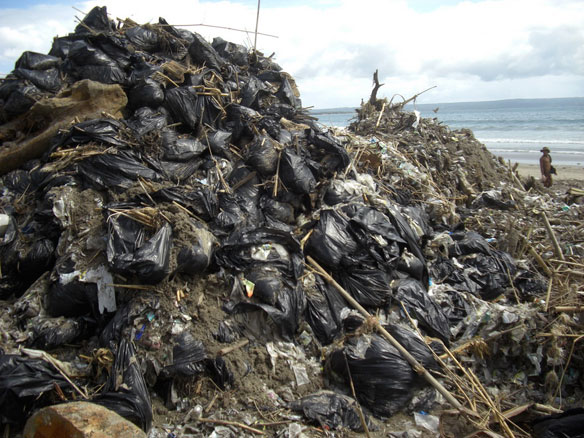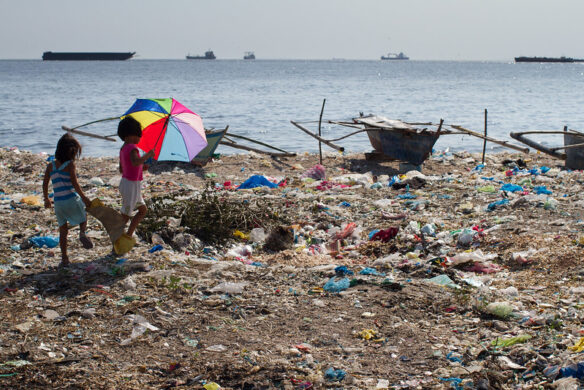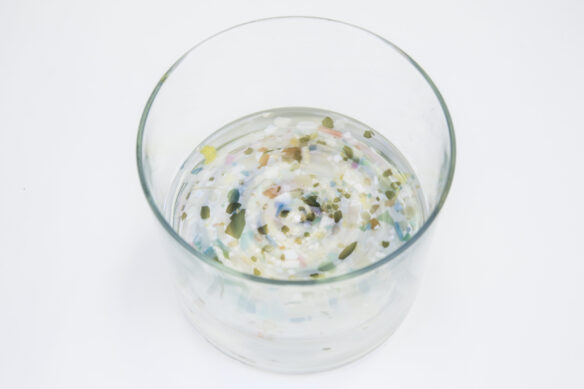
Plastic pollution, Kuta beach, Bali. Photograph: © SAF — Coastal Care
Between 4.8 million tonnes and 12.7 million tonnes of plastic waste enter the ocean every year, 80 percent of it from land sources due to inadequate waste management. According to the Worldwatch Institute, plastic production is increasing 4-5 percent annually.
Excerpts;
Malaysia has sent back 150 containers of plastic waste to 13 mainly rich countries since the third quarter last year.
Shipments of unwanted rubbish have been rerouted to Southeast Asia since China banned the import of plastic waste in 2018, but Malaysia and other developing countries are fighting back…
Read Full Article; ABC News (01-19-2020)
China just handed the World a 111-million-ton trash problem; Bloomberg (06-20-2018)
The world’s biggest waste importer is no longer buying. So where’s all that trash going to go?..
Ocean Oddities: Pacific’s Plastic Island; Surfline (06-06-2017)
Ever since people invented trash, the sea has served as our favorite dump…
Only 14% of plastics are recycled – can tech innovation tackle the rest? Guardian UK (02-22-2017)
Billions of pounds of plastic waste are littering the world’s oceans. Now, an organic chemist and a sailboat captain report that they are developing a process to reuse certain plastics, transforming them from worthless trash into a valuable diesel fuel with a small mobile reactor that could operate on land or at sea…
More than 8. 3 billion tons of plastics made: Most has now been discarded; Science Daily (07-19-2017)
Humans have created 8.3 billion metric tons of plastics since large-scale production of the synthetic materials began in the early 1950s, and most of it now resides in landfills or the natural environment, according to a study.
Plastic pollution: When The Mermaids Cry: The Great Plastic Tide, Coastal Care
Plastic is versatile, lightweight, flexible, moisture resistant, strong, and relatively inexpensive. Those are the attractive qualities that lead us, around the world, to such a voracious appetite and over-consumption of plastic goods. However, durable and very slow to degrade, plastic materials that are used in the production of so many products all, ultimately, become waste with staying power. Our tremendous attraction to plastic, coupled with an undeniable behavioral propensity of increasingly over-consuming, discarding, littering and thus polluting, has become a combination of lethal nature…








